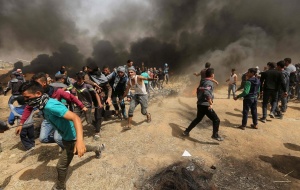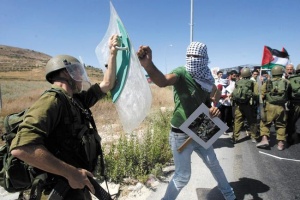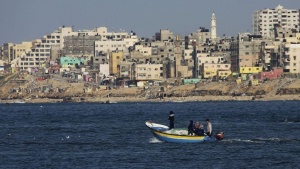On May 18, Israel swore in a new unity government in which Benjamin Netanyahu will continue as Prime Minister until he is succeeded by Benny Gantz in 18 months. The power-sharing deal resolved a political deadlock that lasted for more than 500 days.
While the stated goal of the new government is to fight the coronavirus pandemic, the two politicians also agreed to press ahead with a plan to annex parts of the occupied West Bank as early as July 1 — a move that could have serious consequences.
It is likely that the annexation would deal a serious blow to the already stalled peace process between Israelis and Palestinians. In January, President Trump presented his Middle East peace plan which proposed an independent Palestinian state and recognition of Israeli sovereignty over its settlements in the West Bank area. This was perceived by Netanyahu as a green light for annexation of these territories.
The plan was immediately dismissed by Palestinian President Mahmoud Abbas, stating that Jerusalem and Palestinian rights are not for sale. Subsequently, the Palestinian Authority cut all ties, including security, with Israel and the United States.
Palestinian leaders reject the legitimacy of the Israeli move to annex the settlements, which are seen as illegal by most of the international community. Abbas promised to take measures against Israel and the US in response to the annexation, including cancelling all agreements signed with Israel. Therefore, it would be fair to assume that the annexation would further deteriorate Israeli-Palestinian relations, diminishing prospects for peace. In addition, this move could lead to an escalation in violence.
Hamas, Palestinian Islamic Jihad (PIJ), and other groups could carry out more attacks in response. In a reaction to the Trump peace plan, Hamas stepped up its rocket attacks from the Gaza Strip and hailed ‘acts of resistance’ throughout the West Bank, including a car-ramming attack in Jerusalem.
Both Hamas and the PIJ called on President Abbas to cut all ties with Israel and for an increase in resistance activities. President Abbas even invited Hamas and PIJ officials to a meeting to discuss possible reaction to the Israeli plan. Azzam al-Ahmed, a senior Fatah official, stated that the Palestinian leadership devised a plan, noting that Israel and the US would bear the full consequences in the aftermath of any moves towards annexation. These developments suggest that a rise in violence could be one of the responses.
Calls for resistance activities could motivate lone actors to carry out attacks. Recently, as the swear in of the unity government neared, an increased number of violent attacks were carried out by Palestinians. On 12 May, an Israeli soldier was killed by a rock thrown from a rooftop and, only a few hours later, a Palestinian tried to stab an Israeli security official at Qalandiya checkpoint. On 14 May, the day when the new government was supposed to be sworn in before Netanyahu asked for a three day postponement, a Palestinian deliberately drove his car into Israeli troops, injuring one. These attacks suggest that because of the annexation, more individuals could resort to violence either in a response to calls from Hamas and others or out of grievance. However, the annexation could also lead to a more organized form of resistance.
The annexation could mobilise enough people to start a third Intifada (popular uprising). In the case of the first Intifada, an Israeli vehicle struck two vans carrying Palestinians, killing four of them. A second Intifada followed Ariel Sharon’s visit of the Temple Mount, together with 1, 000 riot police, and the subsequent killing of six Palestinian demonstrators the following day. Although there were arguably more causes for the two Intifadas, the situation escalated for an extended period and the described events were merely triggers, it might be argued that the annexation would be of such significance, compared to the previous two, that it could start a third uprising. Moreover, Palestinians could be supported or even called upon to do so by the Palestinian authorities as a response to the annexation.
All in all, it seems likely that the new Israeli unity government will face serious consequences and a possible rise in violence if it proceeds with its annexation plan. The peace process would not only arguably experience a major setback, but annexation could have security implications for the region as a whole.
Furthermore, difficulties stemming from the coronavirus pandemic could be significantly aggravated by any potential uprising. The government should thoroughly assess the possible costs and benefits of the annexation and try to keep the peace process alive in order to avoid unnecessary crisis and violence.
Moreover, as the settlements are perceived as illegal by many, the international community should step in and pressure both parties to refrain from actions that might be destabilizing for both Israel and the region. Otherwise, the long-lasting conflict might experience yet another escalation which could in turn affect the already unstable Middle East.





